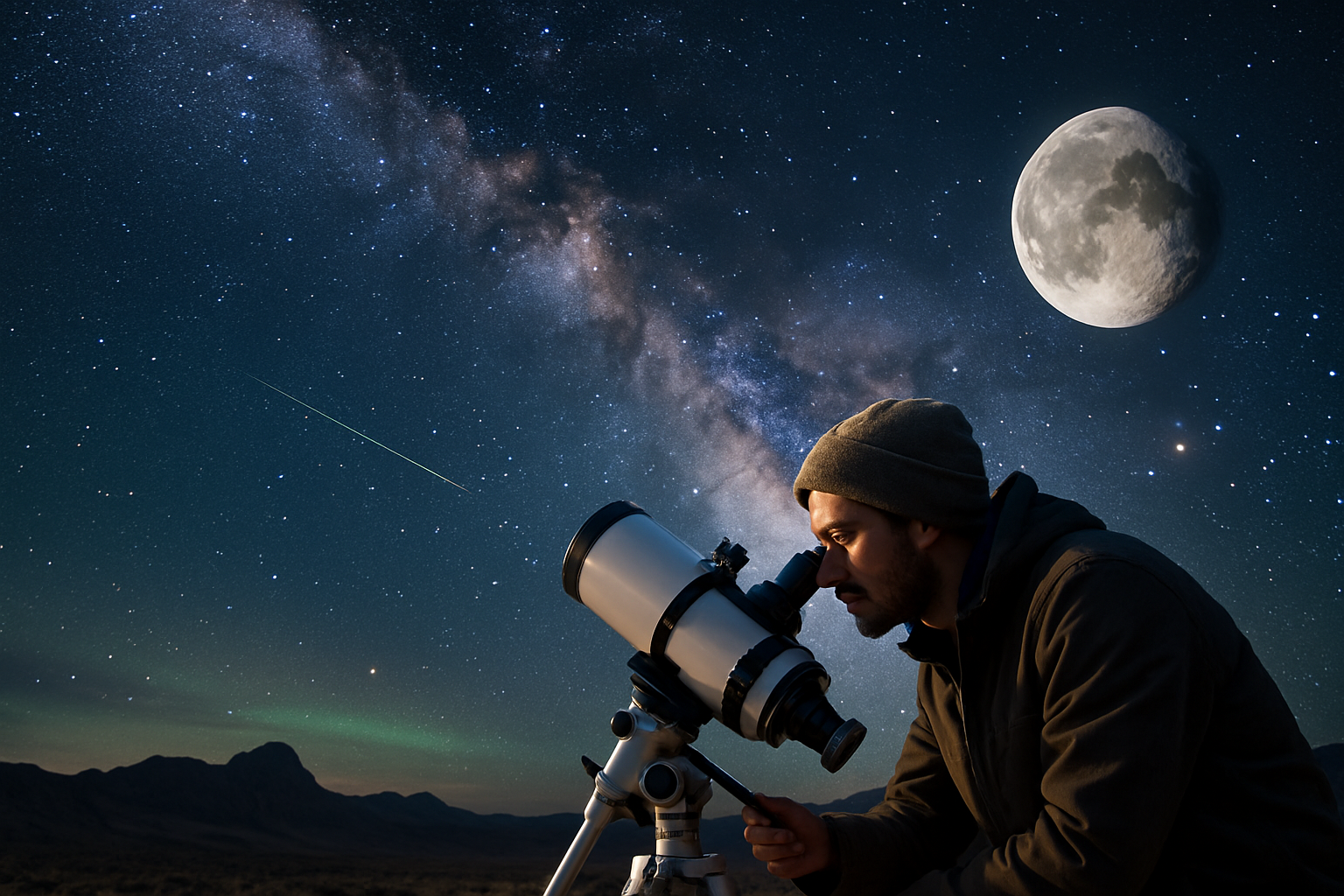Astrotourism: Stargazing Adventures for the Modern Traveler
The night sky has captivated humanity for millennia, but a new travel trend is bringing stargazers closer to the cosmos than ever before. Astrotourism, the practice of traveling to destinations with dark skies for stellar observation, is rapidly gaining popularity among adventure seekers and astronomy enthusiasts alike. This celestial pursuit offers a unique blend of science, nature, and wanderlust, promising unforgettable experiences under the vast expanse of the universe.

The International Dark-Sky Association (IDA) has played a crucial role in promoting astrotourism by certifying locations as Dark Sky Places. These designations have put previously overlooked destinations on the map, creating new economic opportunities for rural communities while preserving natural nightscapes.
Destinations That Shine Bright
While many associate stargazing with deserts or mountaintops, astrotourism destinations are diverse and span the globe. The Atacama Desert in Chile, known for its high altitude and clear skies, has become a mecca for astronomers and amateur stargazers alike. In contrast, the remote islands of Samoa offer a unique opportunity to observe the Southern Cross and other constellations invisible from the Northern Hemisphere.
New Zealand’s Aoraki Mackenzie International Dark Sky Reserve provides an unparalleled view of the Milky Way, while the volcanic landscapes of Hawaii’s Mauna Kea offer world-class observatories open to the public. Even in Europe, places like the Alqueva Dark Sky Reserve in Portugal are drawing visitors with their pristine night skies.
The Science of Stellar Tourism
Astrotourism is not just about passive observation; it’s an educational experience that bridges the gap between professional astronomy and public interest. Many destinations now offer guided tours led by astronomers, workshops on astrophotography, and access to sophisticated telescopes.
The scientific impact of astrotourism extends beyond public engagement. Some locations, like the Square Kilometre Array in South Africa and Australia, combine tourism with groundbreaking research, allowing visitors to witness cutting-edge astronomy in action.
Economic and Environmental Impacts
The rise of astrotourism has had a significant economic impact on remote areas that previously saw little tourist activity. Hotels, tour operators, and local businesses have adapted to cater to stargazers, often extending their seasons into winter months when skies are darkest and clearest.
However, this influx of visitors also presents challenges. Preserving dark skies requires careful management of light pollution and development. Many astrotourism destinations have implemented strict lighting ordinances and visitor guidelines to protect their most valuable asset: the night sky itself.
Cultural Connections Through the Cosmos
Astrotourism offers more than just scientific wonder; it provides a unique avenue for cultural exchange. Many indigenous cultures have rich astronomical traditions, and astrotourism has created opportunities to share these stories with a global audience.
In Australia, Aboriginal sky lore tours combine stargazing with storytelling, offering insights into one of the world’s oldest astronomical traditions. Similarly, Andean communities in Peru are reviving Inca astronomical knowledge, integrating it into tourism experiences that connect the past with the present.
Celestial Travel Tips
-
Plan your visit around the lunar calendar; new moons offer the darkest skies
-
Bring warm layers; temperatures can drop significantly at night, even in desert locations
-
Invest in a red flashlight to preserve your night vision
-
Consider joining a guided tour for expert insights and access to professional equipment
-
Allow time for your eyes to adjust to the darkness; full dark adaptation can take up to 30 minutes
-
Learn basic constellations or download a stargazing app before your trip
As we look to the stars, astrotourism reminds us of our place in the vast cosmos. It offers a chance to disconnect from our everyday lives and reconnect with the wonders of the universe. Whether you’re a seasoned astronomer or simply curious about the night sky, astrotourism provides a unique way to explore our world and beyond, promising adventures that are truly out of this world.






